Host Landry Signé sits down with some of the world’s top global leaders and stakeholders as they reflect on the United Nations’ work at the heart of global peace, sustainable development, multilateral cooperation and institutional reform during this historic 80th General Assembly. This is the first episode of a three-part series reporting from the sidelines of the General Assembly. Participants:
- Nardos Bekele-Thomas, Chief Executive Officer, African Union Development Agency (AUDA-NEPAD) – Listen to the full interview
- Raymond Gilpin, Chief Economist and Head of Strategy, United Nations Development Programme, Regional Bureau for Africa – Listen to the full interview
- Navid Hanif, Assistant Secretary-General for Economic Development United Nations Department of Economic and Social Affairs – Listen to the full interview
- Rasata Rafaravavitafika, (Former) Minister of Foreign Affairs, Republic of Madagascar
N.b.: On September 29, 2025, Madagascar’s president dissolved the government, dismissing all government ministers. At the time of recording, Ambassador Rasata Rafaravavitafika was Minister of Foreign Affairs.
Transcript
[music]
SIGNÉ: Hello, I am Landry Signé, senior fellow in the Global Economy and Development Program and the Africa Growth Initiative at the Brookings Institution. This week, I’m coming to you from the United Nations Headquarters and other venues in New York, in the middle of the 80th U.N. General Assembly, known as UNGA.
Here at the Brookings Foresight Africa podcast, I engage with distinguished leaders in policy, business, academia, and civil society to share their unique insights and innovative solutions to Africa’s challenges while highlighting opportunities to advance engagement between Africa and the global community. You can learn more about this show and our work at Brookings dot edu slash Foresight Africa podcast.
This week’s episode is the first of a three-part series reporting live from UNGA. Naturally, we could not miss the opportunity to bring you an exclusive look at the world’s top political summit, featuring everyone from top diplomats and heads of state, to rising and established stars in business and civil society. This year’s Assembly was organized with the theme “Better Together,” reflecting the present sentiment that we are in a time where the case for multilateral global governance needs renewed defense.
My guests on this episode include executives at the top of the United Nations hierarchy and influential global, continental, and national institutions who provide candid assessments of the UN’s role in the world in 2025 and how they are positioning the organization to adapt to the next 80 years.
[music]
Stay tuned for their specific recommendations and reflections, and to hear how the UN is navigating important changes that affect every facet of global cooperation, from peace and security, human rights, and humanitarian response to education, health, economic development, and the environment.
[3:20]
HANIF: My name is Navid Hanif. I am the Assistant Secretary General for Economic Development at the UN Department of Economic and Social Affairs.
SIGNÉ: I am delighted to have you join me during the 80th UNGA, and I truly appreciate you taking the time to share your insight with our audience. ASG, after 80 years of the United Nations, what do you see as the organization’s most enduring achievements, and how should these be built upon for the future?
HANIF: The United Nations over the last 80 years has brought 193 countries together, built trust among them, and brought them together to find solutions to common and shared challenges. It’s not only climate change, loss of biodiversity, it is also about fighting poverty; giving life of dignity for all; creating conditions where people can enjoy their human rights; and then a moral voice on this global stage to promote peace and security, to promote disarmament.
And UN has given people hope, a shared vision for a future where no one will be left behind, and that is UN’s enduring contribution for the good of humanity and for the coming generation and for saving this planet.
SIGNÉ: I asked the ASG, the assistant secretary general, what his organization’s biggest priorities were at this session of UNGA.
[5:10]
HANIF: Let me share with you what, how is our department positioning itself and what we are advocating for. The Sustainable Development Goals, which are meant to end poverty and hunger, provide everyone access to health, water, and sanitation, empower women, girls’ education, also save the planet, promote behavior of responsible consumption and production.
The motto of the agenda is “Leave No One Behind.” So that means we have to fight two biggest challenges: climate change, inequality. And both are critical, one, for the future of this planet, and our economic prosperity, because the floods, droughts, and hot weather are posing serious threats everywhere. Los Angeles, in Pakistan, in Nigeria. So we are facing droughts and floods and fires everywhere. We need to fight back. We need to have both mitigation, which is reduce emissions, but adapt, get ready to live with these changes as we manage to prevent inequality within societies and among countries. Is becoming intolerable for many people.
The concentration of wealth maybe we have never seen before. And the data abounds. So my department, we are advancing solutions for countries to accelerate the implementation of Sustainable Development Goals, digitalization, energy, access to energy, technology which is affordable, accessible, and gives the ability, capacity for people to use technology.
SIGNÉ: My next guest, speaking for the United Nations Development Program, or UNDP, had similar objectives.
[7:25]
GILPIN: My name is Raymond Gilpin. I’m the chief economist and head of strategy at UNDP’s Africa Bureau in New York.
I think for me, looking back over the last 80 years, one of the milestone contributions of the UN system has been how we have put people at the center of the development discourse. It was UNDP that introduced the Human Development Index in 1990. That helped us think beyond income per capita as a measure of wellbeing to incorporate health and education in indices in the first instance. I think this has been a very important contribution because we start looking at development as a human-centered endeavor and not just as an income targeting endeavor.
And because of this, we’ve seen significant rises in poverty reduction. We’ve seen countries investing a lot more in human capital, in health and education over time, and it’s beginning to pay off for a number of countries.
SIGNÉ: The world today is much different from when the UN was founded in 1945. I asked my guests how the work of their agencies and the global appeal of multilateralism have been impacted by recent international developments.
How do you envision the UN as a whole, or UNDP in particular, adapting to a rapidly changing global landscape marked by new technology, shifting power dynamics, and global crisis?
[9:19]
GILPIN: I think UNDP’s, core mission, remains relevant even in the midst of a lot of global turmoil and change. Firstly, being able to focus on complex development and socioeconomic challenges requires a collective and collaborative approach. One that includes UN agencies, one that includes sovereign states, one that includes a private sector coming together to ensure that the response to complexity is a multifaceted, impactful, and sustainable solution. And I think the UNDP and the UN systems focus on multilateralism is a foundation of all of this.
SIGNÉ: I asked ASG Navid Hanif a similar question.
ASG Hanif, what unique advantages and opportunities does the multilateral system offer countries today as they seek to advance their national priorities while contributing to global public goods?
[10:32]
HANIF: Thank you for such a pointed question. Tell me, is there any powerful country in the world that can fight climate change on its own? Not a single country. Any country that can stop the loss of biodiversity on its own? No. Any country that can fight pollution in the atmosphere, which affects every country’s citizen in terms of their lungs and their health. Can they fight it alone? No.
So multilateral solutions for providing these global public goods are absolutely essential. There is no other choice than to come together, agree on solutions, then implement them together similarly.
And it might appear, oh, I can solve it on my own. Job creation, it’s a national policy design. But unless we give countries opportunities for trading, very well managed opportunities for migration, from learning from each other — I’m not talking about unchecked — but migration, where opportunities for education, learning on the job are created for youth to learn a multilateral system can help them.
[music]
Multilateral system is also critical when you’re hit by a crisis like the debt crisis we are facing. Be it G20, be it United Nations, we have always come together when we have a problem of heavy dead burden on countries. So multilateral solutions are the only way to address these.
SIGNÉ: African interests were well represented at the General Assembly. Speaking on behalf of the African Union Development Agency, my next guest was similarly emphatic about the continued importance of multilateral engagement.
[12:42]
BEKELE-THOMAS: My name is Nardos Bekele-Thomas. I am the chief executive officer of the premier development agency of the African Union, which is called the African Union Development Agency, anchored on the principles of the former New Partnership for Africa’s Development.
SIGNÉ: I am delighted to have you during the 80th UNGA, and I truly appreciate you taking the time to share your insight with our audience, especially how hectic we know this week is. So, Madame CEO, what are your top priorities from a AUDA-NEPAD perspective for the 80th session of UNGA? And how do you see these shaping the global agenda moving forward?
BEKELE-THOMAS: Well, you know, there are many priorities when it comes to my own agency, the African Union Development Agency. But the most important element and purpose why we are here today and, you know, this week actually, is to make sure that, you know, multilateralism, which has been threatened over the last few years is really regains its, you know, popularity and its place in this global, universal and global world which we share. And therefore, you know, we are here to make sure that multilateralism is is echoed and the importance is underscored. That is the first one.
And, you know, within that are the principles that guide multilateralism, which is, you know, solidarity for humanity, being together, understanding that the threats to this world are becoming common, more and more common than before. The climate threat is a common, you know, agenda for this planet and for this world. You know, the migration issue is a common agenda, which needs to be addressed, not only just, you know, superficially through the manifestation of, you know, the effects of migration, but also the root causes of them.
But also understanding that migration is not just negative. It’s a natural thing that lived with us, with human beings forever and ever from the very start, you know. So, you know, all these common issues that threaten the prosperity of this world, you need to surface again and make sure that the private sector, together with the policymakers, together with the development partners, together with the North South, getting together and echoing, you know, giving their commitment and engagement towards multilateralism and underscoring the importance is one of the key elements why we are here.
SIGNÉ: She also made clear that Africa is an essential part of the UN’s multilateral efforts, not just as a recipient of aid but as an engine for global success.
[16:13]
BEKELE-THOMAS: When we talk about climate and all what it takes for the transition, for the just transition, every ingredient that this world needs for its transition is found in in Africa. Africa possesses 30% of the world’s minerals. Africa possesses, you know, 66.6% of the cobalt. Africa poses the lithium, the magnesium, the platinum groups.
And what doesn’t Africa have? The people? The most important is the people, the young people, which constitutes 60% to 70% of our population. And the population that grows and the population that has the potential to innovate. African innovation is really modernizing the rest of the world. So, you know, realizing that and having competence in ourselves and translating all these natural resources into wealth that benefit our people is something that we have learned over the last years.
And, you know, there is a mind shift, a mind shift, you know, an understanding that we are the people, we are, you know, the sources of wealth and prosperity, and we have to work for our own continent, which is Africa. But Africa’s development is also the development of others. African prosperity is the prosperity of others.
And this recognition is transformative.
SIGNÉ: Beautiful, Madame CEO, I really like how you connect Africa’s prosperity to world prosperity.
[music]
SIGNÉ: Among the many representatives of African governments at this year’s Assembly, I was privileged to speak with Madagascar’s minister of foreign affairs, Her Excellency Rasata Rafaravavitafika.
[18:14]
RASATA RAFARAVAVITAFIKA: Well, thank you very much for having me. Hello, everyone. I am Mrs. Rasata Rafaravavitafika, minister of foreign affairs of the Republic of Madagascar.
SIGNÉ: I am delighted to have you join me during the 80th United Nation General Assembly, and I’m truly appreciative of you taking the time, despite the hectic schedule to share your insight with our audience. What are Madagascar’s top priorities for the 80th session of UNGA and how do you see these shaping the global agenda moving forward?
RAFARAVAVITAFIKA: Well, the most important for Madagascar is to really engage with all the different countries present here at UNGA 80, at those countries that share the same values of our as our country.
You know, Madagascar is now chairing the Southern African Development Community and His Excellence Mr. President Andry Rajoelina, is the chairperson of SADC. His priorities are energy transition. Agriculture transformation, and of course industrialization. So these will be the three main points of interest for Madagascar.
But you know, as we celebrate 80 years of United Nations, I think that it is high time now to think of how we can make our organization, our United Nations more efficient. How can we make sure that the next eight decades will be decades of action for all the 193 member states at the UN?. So these are the main priorities and objectives for Madagascar,
SIGNÉ: The minister also explained that like many African countries, Madagascar was also advocating for a bigger seat at the table for Africa within the UN and the wider system of global governance
[20:32]
RAFARAVAVITAFIKA: I think the first thing to do at UN level is the transformation and reform of the multilateral system. We need more representation for African countries. We need them to be more represented at the UN Security Council not only as non-permanent members, you know, but really engaged at the core of this organ. That’s one thing.
The second thing is to rethink the international financial system. How can we make sure that beyond the aid, development aid, we can really make sure that there are sufficient financing mechanisms which are different and separated from the development aids and fundings?
SIGNÉ: Amazing Excellency! And what makes UNGA a uniquely valuable forum for advancing these priorities and strengthening multilateral engagement?
[21:35]
RAFARAVAVITAFIKA: Well, as I mentioned earlier, what the United Nations can do as an international organization and what, what would be the takeaways from this UNGA 80 is, I mean, new avenues of cooperation, new objectives for the next eight decades, but especially the most important thing would be to find a common strategy so that we can really, beyond words and statements and speeches, make sure that we turn these into action and promises.
[music]
SIGNÉ: Raymond Gilpin, UNDP’s Chief Economist for Africa, also pointed out the need to match words with action, particularly in the area of global financing.
[22:34]
GILPIN: The multilateral system recognizes that even though we are able to have, you know, enduring goals, if we cannot connect those goals to accessible, available, and affordable financing, those goals remain dreams. To materialize those dreams, we need to ensure that those who need capital the most could access it, and when they access it, it is affordable. Because we know, we all think it’s unconscionable that over 750 million Africans live in countries that are paying more on debt interest than they pay, than than they devote to things like health and education. We need to flip that narrative to ensure that the countries that could afford it the least are not paying the most.
I think that becomes a fairer, not just a fairer world, but a world in which we see the growing demographics not so much as a threat, but as an opportunity for markets to grow and for welfare to expand
SIGNÉ: Navid Hanif, the assistant secretary-general for economic development, said that the UN is already tackling overhaul of international development financing as part of its Agenda 2030.
[24:11]
HANIF: So when you talk of global governance, international financial architecture needs to change. Voice and participation, policy design, implementation — all of these, especially in the area of sovereign debt, it’s outdated. We need to revisit the whole structure. Global governance also needs to improve and varies impactfully, the way we measure success, the way we measure impact at the country level.
SIGNÉ: For ASG Hanif, there is no contradiction between the focus on measurable impact and action and the UN’s identity as a fundamentally hopeful and ideas-based institution.
HANIF: We are an organization which is in the business of hope. We want to give people hope that tomorrow is better than today, despite the challenges.
[music]
And it’s not naive optimism, optimism based on what we have delivered so far and what we are capable of delivering when we work together.
SIGNÉ: What an exceptional summary of what the UN continues to stand for 80 years later. This concludes the first part of our special series on UNGA 2025. Stay tuned next week for my discussion on how the UN engages with businesses, governments, and entrepreneurs to promote a stronger global economy and coordinate with the role of the private sector.
[music]
I am Landry Signé, and this has been Foresight Africa. Thank you, listeners, for joining me today.
The Foresight Africa podcast is brought to you by the Brookings Podcast Network. Send your feedback and questions to podcasts at Brookings dot edu. My special thanks to the production team including Fred Dews, producer; Nichole Grossman, Dafe Oputu, and Nicole Ntungire, associate producers; Gastón Reboredo, audio engineer; and Izzy Taylor, senior communications coordinator in Brookings Global.
The show’s art was designed by Shavanthi Mendis. Additional promotional support for this podcast comes from my colleagues in Brookings Global and the Office of Communications at Brookings.
- Subscribe to Foresight Africa on Apple, Spotify, Afripods, or wherever you listen to podcasts.
- Listen to previous episodes.
- Watch episodes on YouTube.
- Learn about other Brookings podcasts from the Brookings Podcast Network.
- Sign up for the podcasts newsletter for occasional updates on featured episodes and new shows.
- Send feedback to [email protected].
The Brookings Institution is committed to quality, independence, and impact.
We are supported by a diverse array of funders. In line with our values and policies, each Brookings publication represents the sole views of its author(s).


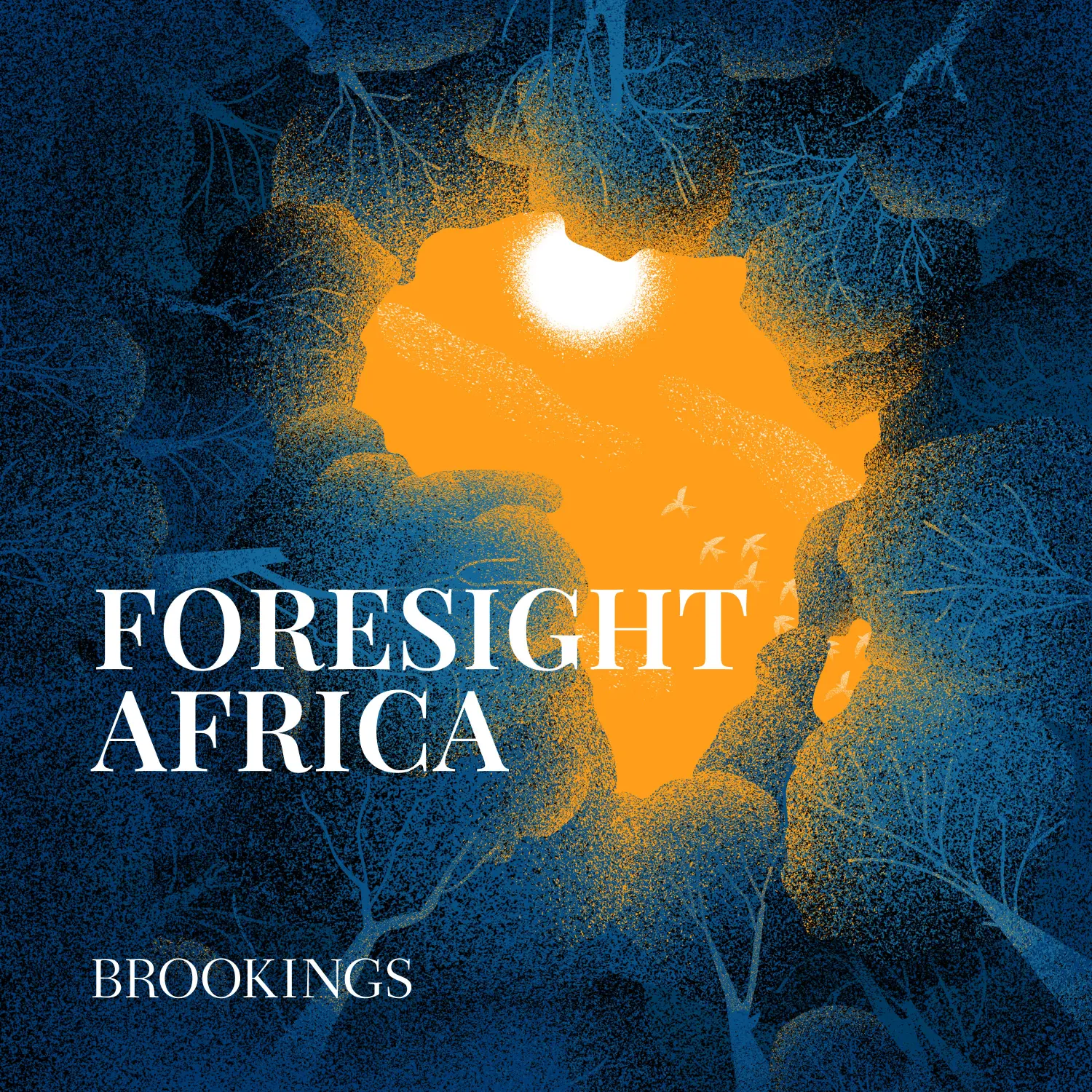
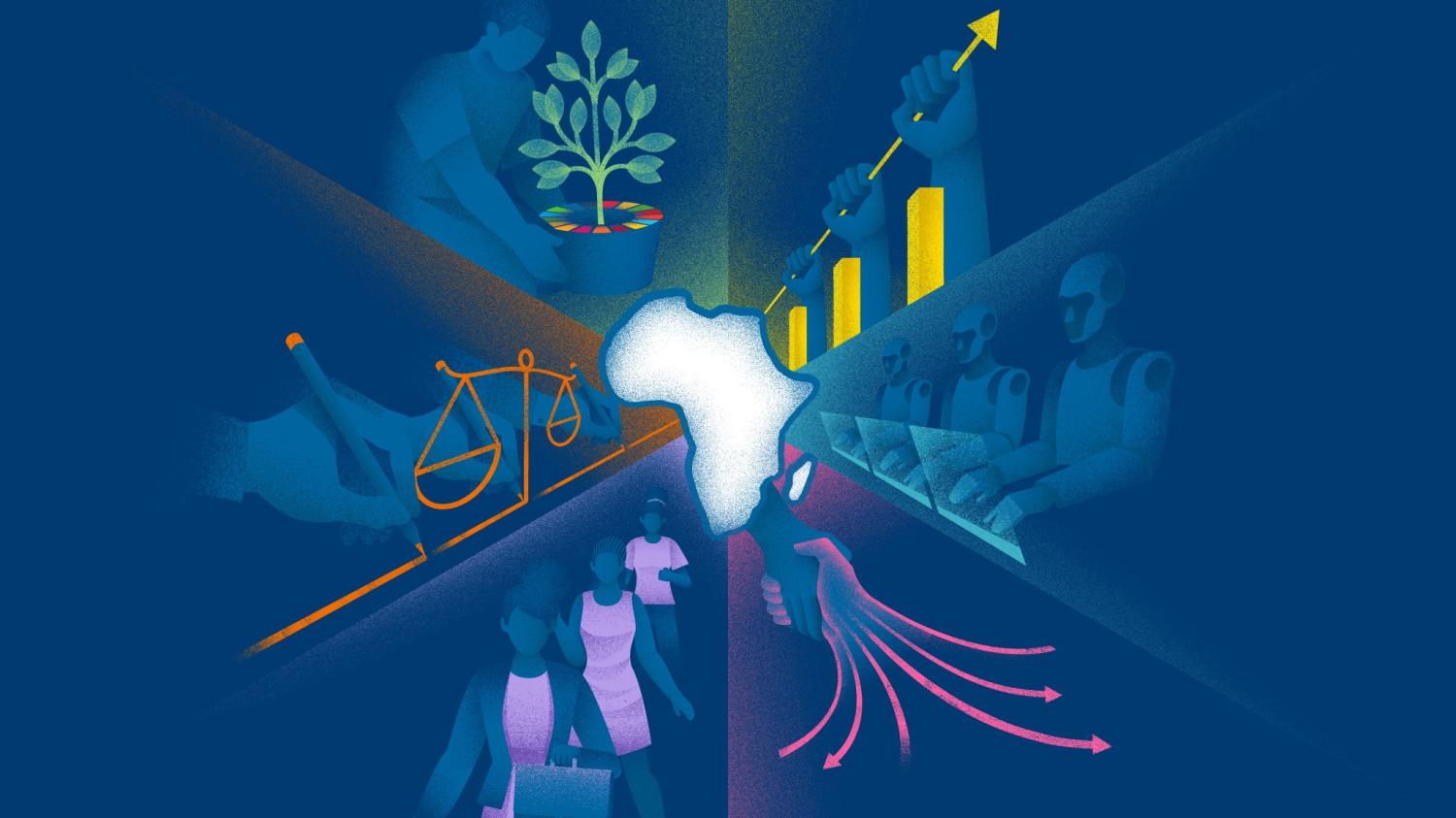
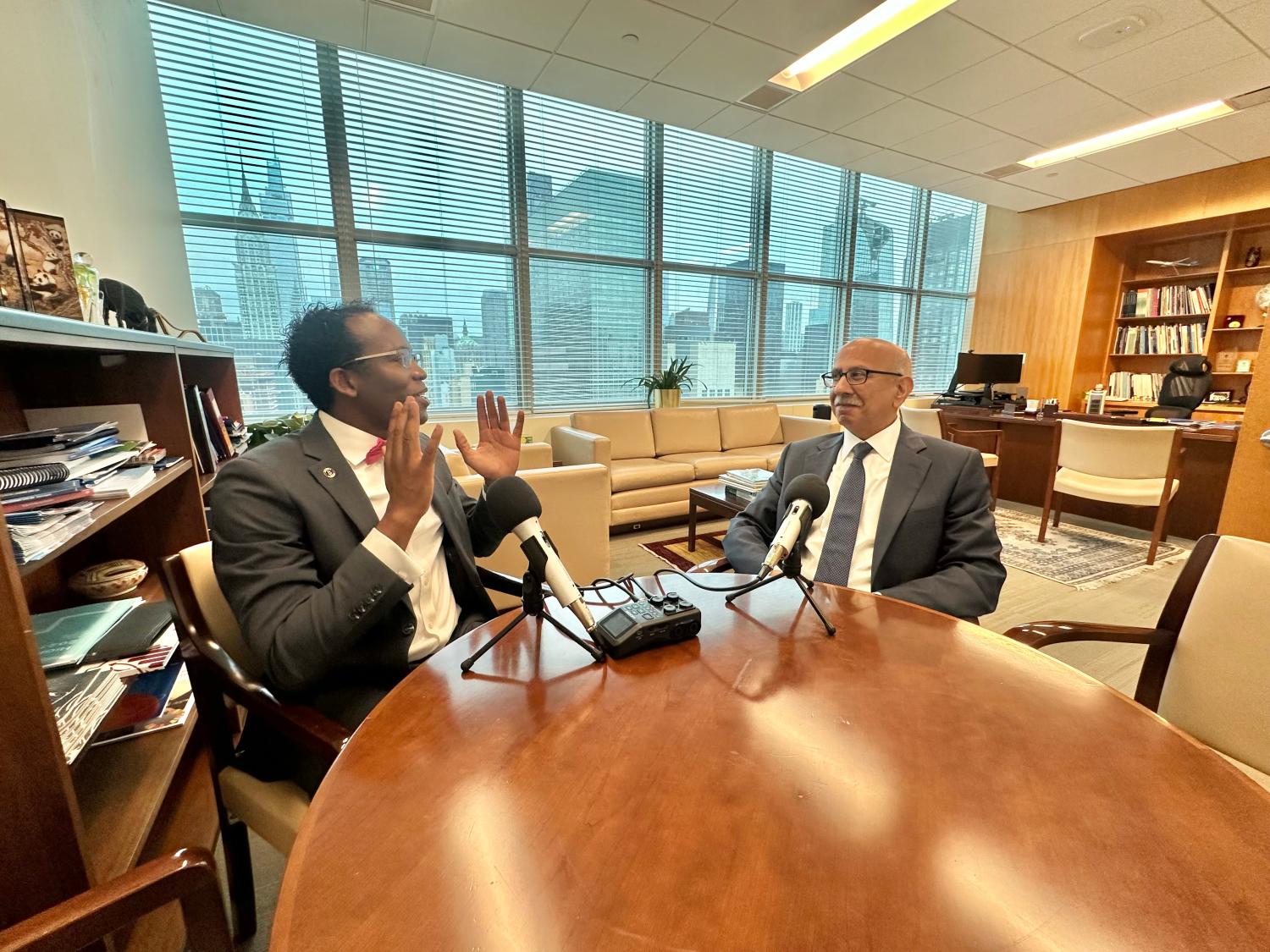
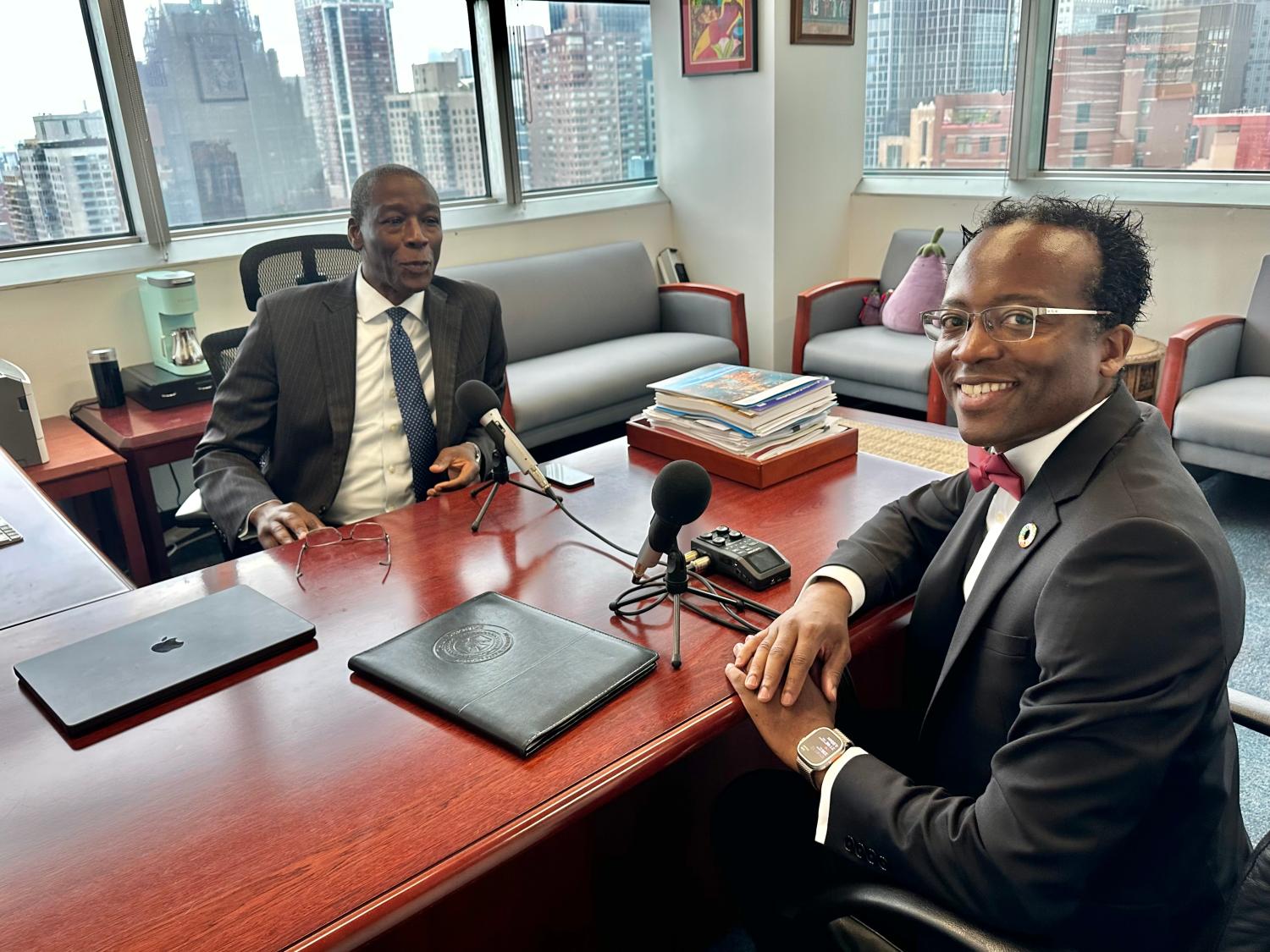
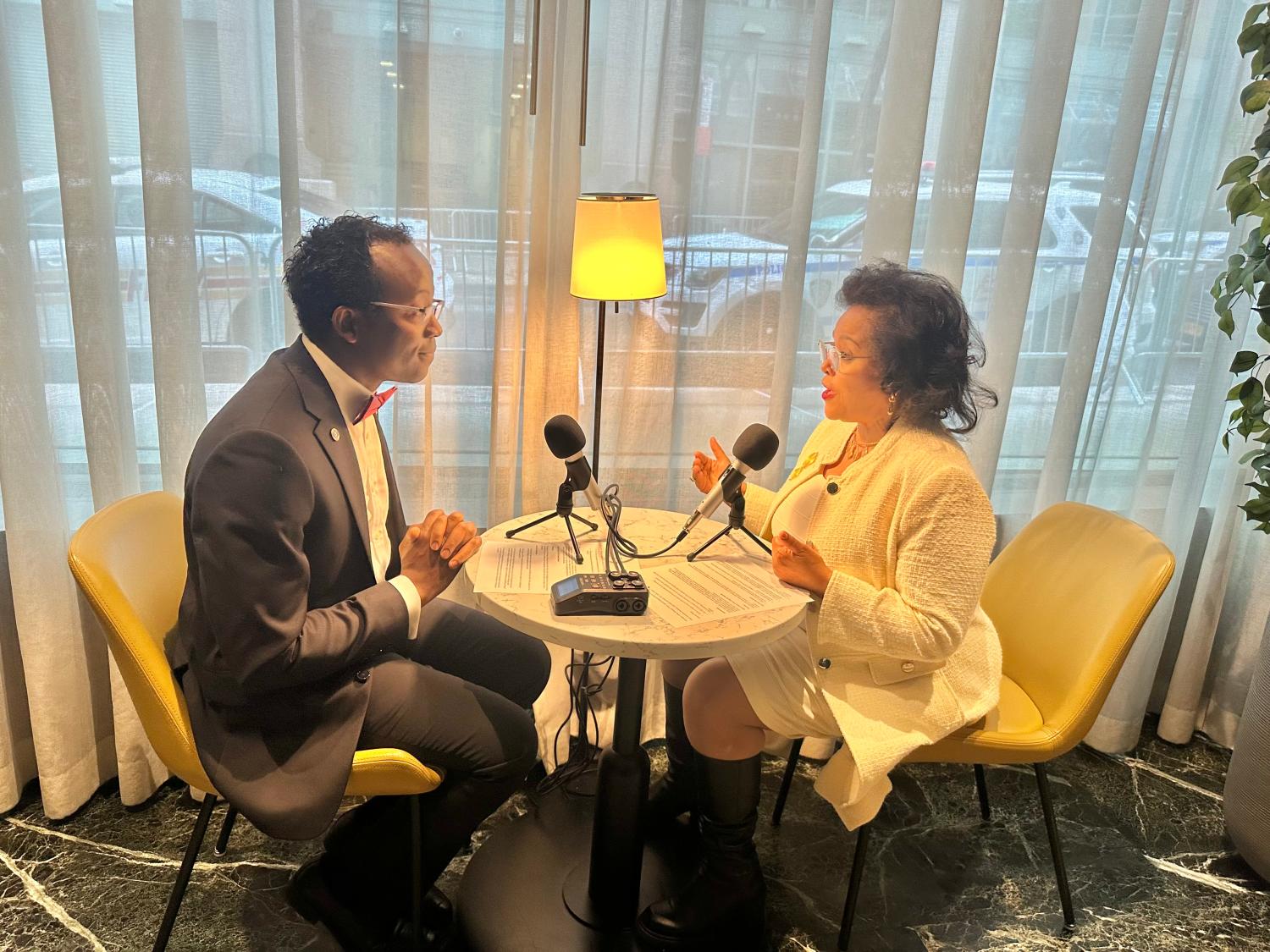
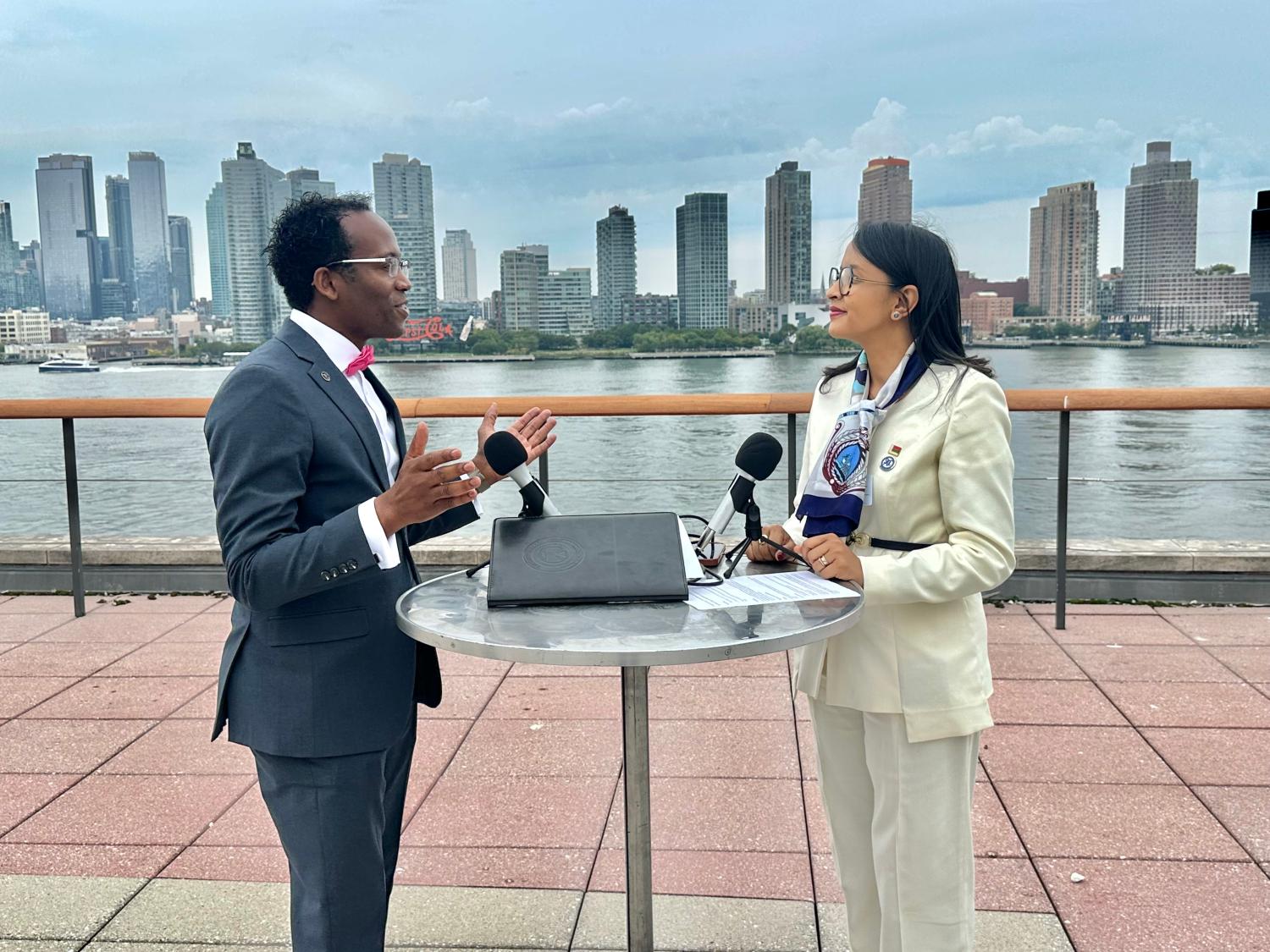
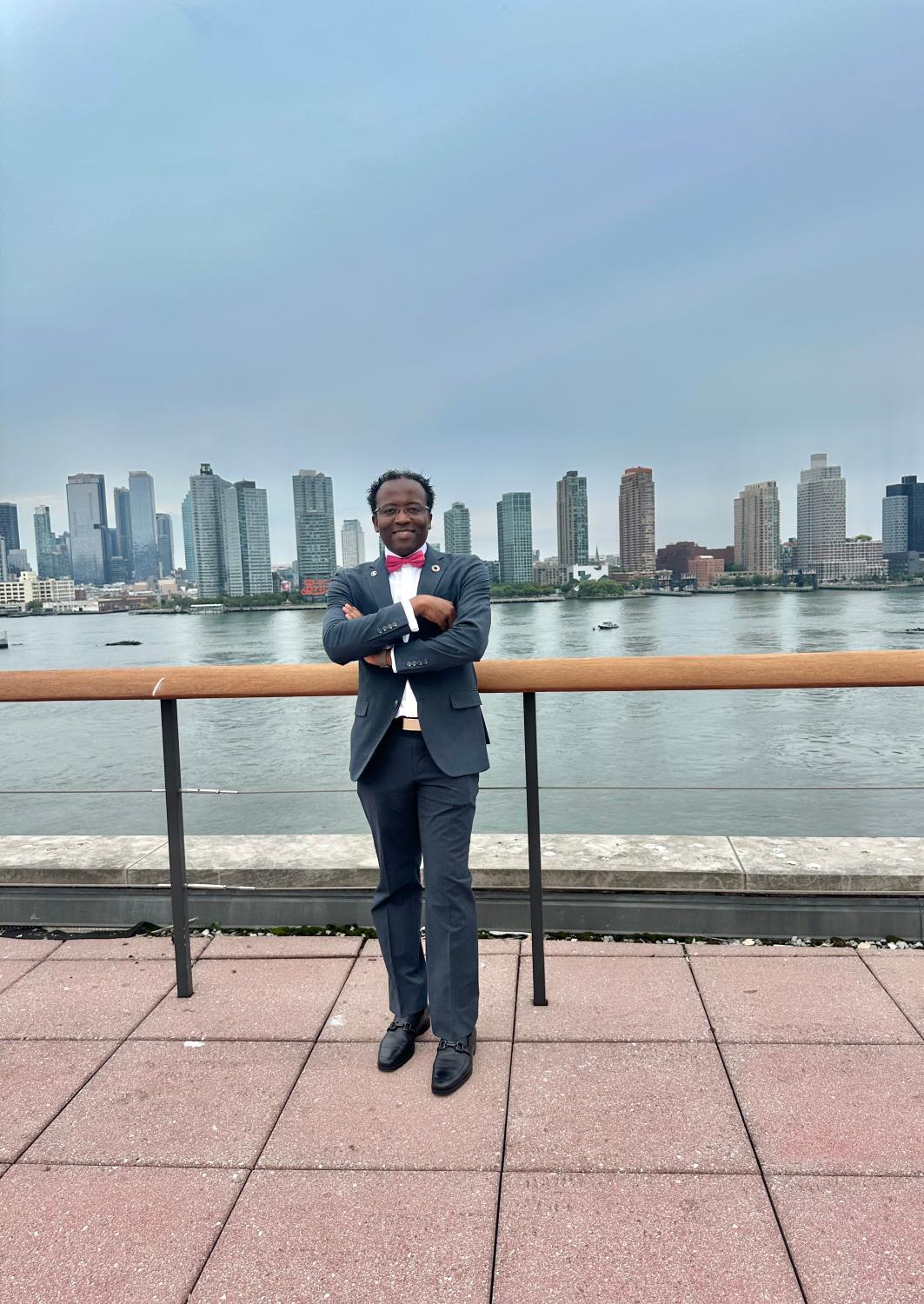




Commentary
PodcastFor the good of humanity: The United Nations as a global problem solver
Listen on
Foresight Africa Podcast
October 8, 2025